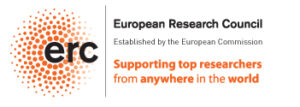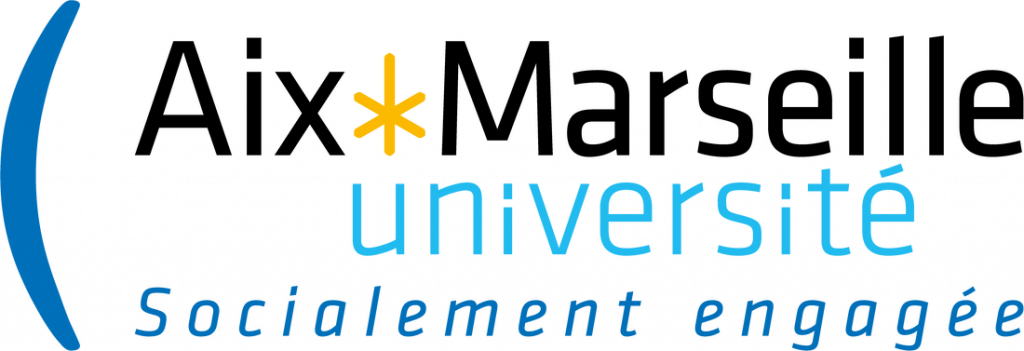Scientific Committee
Comité scientifique
Alice Bonami (Université d’Orléans)
Guy David (Université Paris-Saclay)
Svitlana Mayboroda (University of Minnesota)
Yves Meyer (Université Paris-Saclay)
Organizing Committee
Comité d’organisation
Frédéric Bernicot (CNRS, Université de Nantes)
José María Martell (Instituto de Ciencias Matemática ICMAT-CSIC-UAM-UC3M-UCM)
Sylvie Monniaux (Aix-Marseille Université)
Pierre Portal (Australian National University)
The conference will bring together researchers in analysis of partial differential equations (PDE) who share a common core expertise in harmonic analysis. Over the past 20 years, and especially over the past 10 years, this expertise has led to major progress on a variety of PDE problems, including elliptic, parabolic, and dispersive equations, both linear and non-linear. These progress have “roughness” as a common theme; they involve removing smoothness restrictions on the data, the media, the external forces, and/or the underlying geometry. This, in turn, leads to much more realistic models needed in applications.
The rapid progress in the field, based on closely related technical innovations, is exciting but also presents a new challenge. It is becoming highly difficult for individual researchers to stay on top of all the developments in the area. The conference will address this challenge by highlighting the commonalities between these developments, connecting and reconnecting research programs focused on different equations, but sharing a harmonic analytic perspective. This includes:
- Elliptic and parabolic boundary value problems on Lipschitz domains, building on the T (b) machinery developed in the solution of Kato’s square root problem.
- Parabolic evolution equations, exploiting extrapolation methods grounded in weighted harmonic analytic estimates.
- Navier-Stokes equations, controlling harmonic analytically defined quantities that reflect the specific algebraic structure of the non-linearity
- Wave equations, using refined Littlewood-Paley decompositions.
- Stochastic parabolic PDE, using paradifferential calculus to build a dual theory to Hairer’s regularity structures.
- Non-linear Schrödinger equations, including both deterministic and probabilistic well-posedness through the control of appropriate harmonic analytically defined quantities.
The meeting will bring together a group of participants that is diverse in various ways, including where they work, the equations they work on, and levels of seniority, but share a common harmonic analytic perspective. It will also be an opportunity to celebrate the 60th birthday of Pascal Auscher, who has helped connect diverse harmonic analysts throughout his career.
Cette conférence réunira des chercheur·es en analyse des équations aux dérivées partielles (EDP) qui ont en commun une expertise en analyse harmonique. Au cours des vingt dernières années, et tout particulièrement au cours des dix dernières années, cette expertise a été cruciale dans la solution de nombreux problèmes en EDP, tant pour des équations elliptiques et paraboliques que pour des équations dispersives, et autant pour des problèmes linéaires que non-linéaires. Ces avancées ont pour thème commun la rugosité, en ce sens qu’elles impliquent l’élimination d’hypothèses de régularité sur les données, le milieu sous-jacent et sa géométrie, et les forces extérieures appliquées au système considéré.
La rapidité et l’étendue des progrès dans le domaine est impressionnante mais pose un problème nouveau. Tant bien même que ces progrès reposent sur des innovations techniques similaires, il est devenu très difficile pour les experts du domaine de rester à jour sur les multiples développements. Notre conférence a pour but de remédier à ce problème en exposant les similarités techniques entre tous ces développements et en connectant ou reconnectant différents programmes de recherche dans le domaine qui ont en commun une certaine perspective venue de l’analyse harmonique. La conférence explorera notamment les problèmes suivants :
- Problèmes aux bords elliptiques et paraboliques, utilisant notamment la technologie T (b) issue de la solution du problème de Kato.
- Équations d’évolution parabolique, utilisant notamment les techniques d’extrapolation basées sur les estimées à poids en analyse harmonique.
- Équations de Navier-Stokes, grâce au contrôle de certaines quantités issue de l’analyse harmonique qui reflètent la structure algébrique spécifique de la non-linéarité.
- Équations des ondes, utilisant notamment des décompositions de Littlewood-Paley raffinées.
- Équations paraboliques stochastiques, utilisant notamment le calcul paradifférentiel pour construire une théorie duale aux structures de régularité de Hairer.
- Équations de Schrödinger non-linéaires, tant pour les données déterministes que probabilistes, grâce au contrôle de certaines quantités issue de l’analyse harmonique.
Les participant·es à cette conférence formeront un groupe fort de sa diversité, notamment en terme des équations considérées, des institutions représentées et des niveaux de carrière, uni par sa culture en analyse harmonique. La conférence leur donnera aussi l’occasion de fêter les soixante ans de Pascal Auscher, un collègue qui a fortement contribué à la cohésion de la communauté des analystes harmoniques tout au long de sa carrière.
SPEAKERS
Wolfgang Arendt (Ulm University) The Dirichlet Problem for Elliptic Operators without Maximum Principle
Hajer Bahouri (CNRS, Sorbonne Université) Global well-posedness for the derivative nonlinear Schrodinger equation with periodic boundary conditions
Cristina Benea (Université de Nantes) TBA
Andrea Carbonaro (University of Genoa) Semigroup maximal operators and p-ellipticity
Li Chen (Louisiana State University) Heat kernel gradient bounds on the Vicsek set
Baptiste Devyver (Université de Nantes) Lp Hodge decomposition for asymptotically Euclidean manifolds
Moritz Egert (Technical University of Darmstadt) Unexpected norms on BMO and the Dirichlet problem
Dorothée Frey (Karlsruhe Institute of Technology) Magnetic phase space transforms and magnetic evolution equations
Sandrine Grellier (Université d’Orléans) Traveling waves for a family of Szegö equations
Steve Hofmann (University of Missouri) A problem of free boundary type for caloric measure
Tuomas Hytönen (Aalto University) Almost diagonal operators on matrix-weighted function spaces
Seick Kim (Yonsei University) Dirichlet problem for second order elliptic equations in nondivergence form with continuous coefficients
Peer Kunstmann (Karlsruhe Institute of Technology) Off-diagonal estimates and all that jazz
Linhan Li (University of Edinburgh) Uniform rectifiability, smooth distance, and Green function
Kaj Nyström (Uppsala University) Sharp regularity of solutions to evolutionary p-obstacle problems in higher order intrinsic interpolative geometries
El-Maati Ouhabaz (Université de Bordeaux) An almost Riesz transform inequality for general Riemannian manifolds
Emmanuel Russ (Université Grenoble Alpes) Hardy Smirnov spaces of pseudo-analytic functions
Christoph Thiele (University of Bonn) Maximally modulated singular integrals on doubling metric measure spaces






